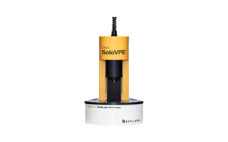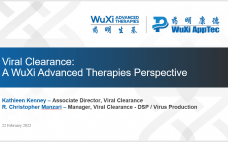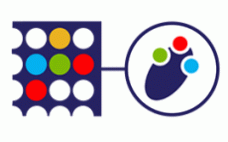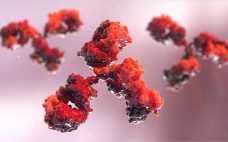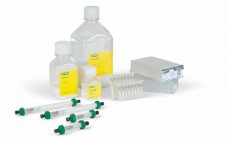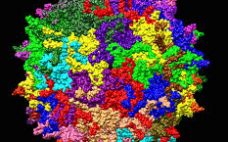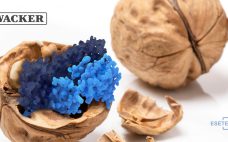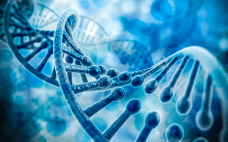This webcast features: Paul Mania, Bioanalytics Applications Specialist, Repligen. Traditional UV/Vis spectroscopy uses fixed pathlengths to measure different analytes, such as nucleic acids, proteins, and cells from biological samples. These samples are often limited in volume or highly concentrated, which presents various challenges. The CTech™ SoloVPE® System uses a patented variable pathlength technology (VPT) to accurately measure the targeted concentration of various analytes. The system measures concentrations without being dependent on sample volume or sample concentration, removing any dilution requirements,…
Downstream
Increasing Productivity of IVT Reaction Using At-Line Monitoring by HPLC Chromatography
This webcast features: Rok Sekirnik, PhD, Head of Process Development mRNA/pDNA, BIA Separations, now a Sartorius company. In Vitro Transcription (IVT) reactions are normally performed as batch processes. Considering their catalytic basis, it is possible to extend reaction times and yields by continuous addition of consumed reagents to the reaction mixture. However, fed-batch strategies reported to date have only managed to achieve a 40 – 100% increase in the production of mRNA. One of the main limitations of development has…
Viral Clearance: A WuXi Advanced Therapies Perspective
This webcast features: Kathleen Kenney, Associate Director, Viral Clearance, WuXi Advanced Therapies, R. Christopher Manzari, Manager, Viral Clearance – DSP/Virus Production, WuXi Advanced Therapies. Join us for a discussion on the risk-based approach in the development of Viral Validation studies, a key testing requirement for regulatory submissions of viral vector-based therapeutics, at WuXi Advanced Therapies. In this webinar, members of the Viral Clearance Management team will cover the basics of viral clearance, study development and the general timeline. Collaboration between…
Addressing Purification Challenges for Complex Therapeutics with Custom Chromatography Resins
This webcast features: Laurens Sierkstra, Business Segment Leader, Bioproduction Group, Thermo Fisher Scientific. Ongoing progress in biotherapeutics development has initiated an increasing range of complex molecules entering the drug development pipeline such as novel vaccines and therapeutic proteins. This often rises challenges in the manufacturing process of these newer modalities, with downstream operations as a focus point as this part of the production process frequently represents a bottleneck. Addressing downstream challenges requires novel purification strategies for commercial manufacturing which may…
The Way Forward in Therapeutic Antibody Purification
This webcast features: Dr. Anna Le Bris, Senior Application Specialist and Trainer, Thermo Fisher The development of therapeutic antibodies has made an enormous progression in the last decades. Antibodies have become the predominant class of biological drugs and are used to treat a variety of diseases such as cancer. Recently, neutralizing antibodies to halt infectious diseases are entering the clinical pipeline, including against Sars-Cov2. Affinity purification platforms such as Protein A or L are well established in the manufacturing process…
Exploring On-Column mAb Aggregate Formation and Self-Generated On-Column pH Gradients with Cation Exchange Resins
This webcast features: William H. Rushton, Process Chromatography Support Scientist, Bio-Rad Laboratories The formation of aggregates is a common occurrence during monoclonal antibody (mAb) purification and can happen for several reasons. Aggregates are undesirable due to the possibility of altered pharmacodynamics, pharmacokinetics, and/or increased immunogenicity. Generally, the formation of aggregates is shown to be product or process related. A high-resolution cation exchange (CEX) resin, Nuvia HR-S, has been shown to reduce aggregate content with high monomer recovery. In this webcast,…
Simplifying AAV Downstream Process and Product Characterization: A Look at Purification and Analytical Tools
This webcast features: Dr. Julia Baek, PhD, Staff Specialist, Ilaria Scarfone, PhD, MBA, Field Applications Specialist, and Chantelle Gaskin, Field Applications Specialist, Thermo Fisher The optimization of the downstream process for adeno-associated virus (AAV) production with consistent quality depends on the ability to characterize critical quality attributes affecting potency, purity, and safety of the final product. As the gene therapy field continues to push products through the clinical pipeline, an increasing need for efficient analytical tools has become evident. In…
Mixed-Mode Chromatography: Optimizing Target Purity and Recovery with Buffer Additives
This webcast features: Xuemei He, PhD, R&D Manager of Chromatography Media Chemistry, Bio-Rad Laboratories New biotherapeutic constructs continue to increase in biopharmaceutical development, extending treatment options to a broad range of diseases we face today. These biopharmaceuticals include recombinant proteins, monoclonal antibodies, antibody drug conjugates, bispecifics, viruses, and virus-like particles to mention a few. A simple, straightforward approach to the production of these biomolecules is required to meet the current demand for process efficiency and economics. Innovative chromatographic methods facilitate…
Inducible Secretion with ESETEC: The Solution for Difficult-to-Produce Proteins
This webcast features: Dr. Marcel Thoen, Head of Global Competence Center for Cell Line Development, Wacker Biotech Escherichia coli is the most popular expression system for all nonglycosylated biopharmaceuticals. However, common challenges include purification of expressed proteins recovered from the periplasm or those needing refolding from inclusion bodies. These constraints have been addressed by the unique secretion E. coli expression system ESETEC (E. coli secretion technology) developed by Wacker Biotech. Through years of experience, Wacker Biotech has observed that secretion…
Ensuring Viral Safety in Cell & Gene Therapy Through Next-Generation Sequencing
This webcast features: Horst Ruppach, Senior Scientific and Portfolio Director, Global Biologics, Charles River The viral contamination risk of cell and gene therapy products is significant. Multiple factors open the windows for viruses to enter the process. The current viral risk mitigation strategies have limitations and can either not be applied or have limitations to cover a broader range of potential viral contaminants. One of the most important entry points to monitor are the cells. They are used to produce…

